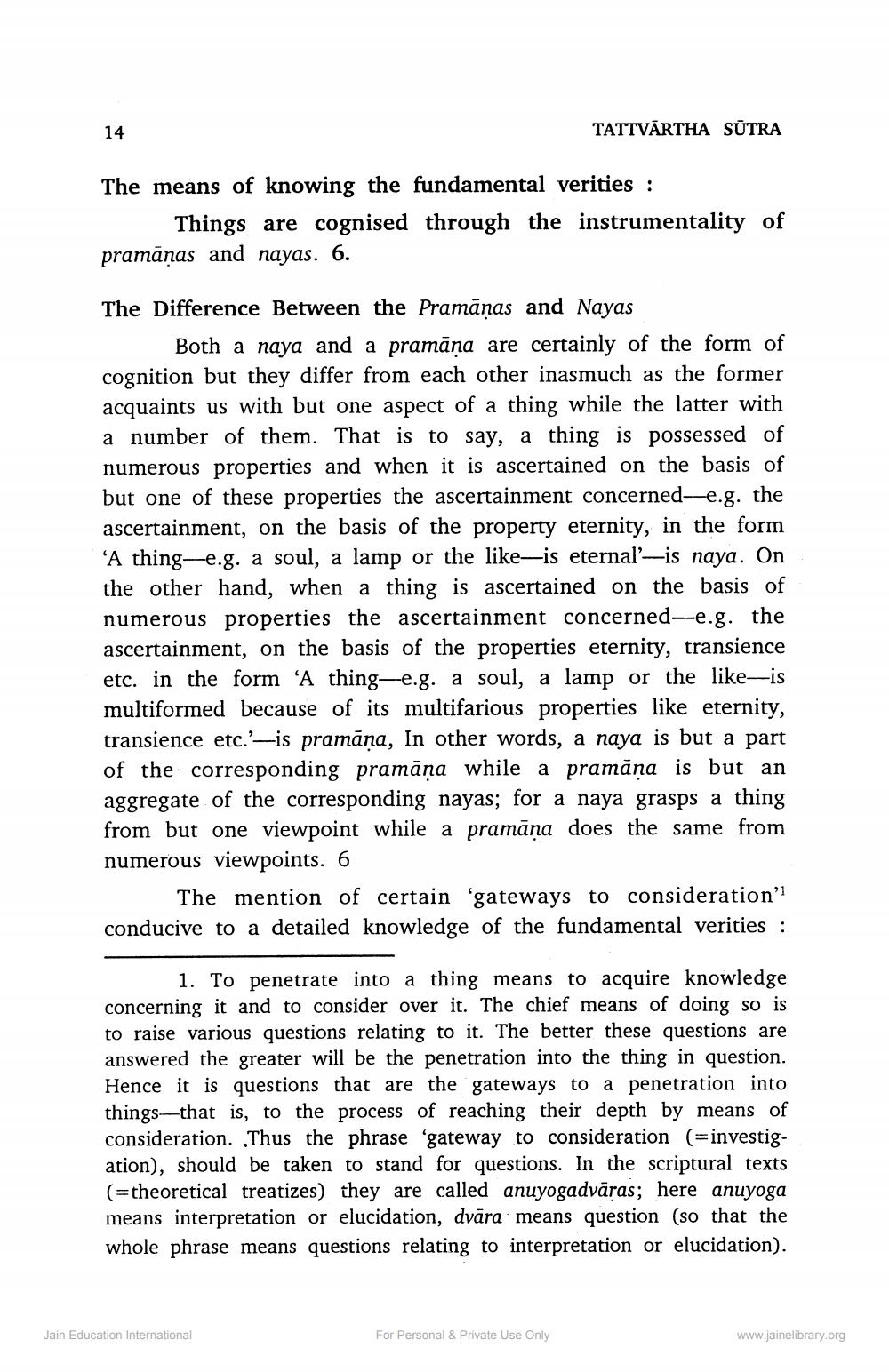________________
TATTVĀRTHA SŪTRA
The means of knowing the fundamental verities :
Things are cognised through the instrumentality of pramānas and nayas. 6.
The Difference Between the Pramāṇas and Nayas
Both a naya and a pramāņa are certainly of the form of cognition but they differ from each other inasmuch as the former acquaints us with but one aspect of a thing while the latter with a number of them. That is to say, a thing is possessed of numerous properties and when it is ascertained on the basis of but one of these properties the ascertainment concerned-e.g. the ascertainment, on the basis of the property eternity, in the form ‘A thing-e.g. a soul, a lamp or the like—is eternal-is naya. On the other hand, when a thing is ascertained on the basis of numerous properties the ascertainment concerned-e.g. the ascertainment, on the basis of the properties eternity, transience etc. in the form 'A thing-e.g. a soul, a lamp or the like—is multiformed because of its multifarious properties like eternity, transience etc.?—is pramāna, In other words, a naya is but a part of the corresponding pramāṇa while a pramāņa is but an aggregate of the corresponding nayas; for a naya grasps a thing from but one viewpoint while a pramāņa does the same from numerous viewpoints. 6
The mention of certain gateways to consideration' conducive to a detailed knowledge of the fundamental verities :
1. To penetrate into a thing means to acquire knowledge concerning it and to consider over it. The chief means of doing so is to raise various questions relating to it. The better these questions are answered the greater will be the penetration into the thing in question. Hence it is questions that are the gateways to a penetration into things—that is, to the process of reaching their depth by means of consideration. Thus the phrase "gateway to consideration (=investigation), should be taken to stand for questions. In the scriptural texts (=theoretical treatizes) they are called anuyogadvāras; here anuyoga means interpretation or elucidation, dvāra means question (so that the whole phrase means questions relating to interpretation or elucidation).
Jain Education International
For Personal & Private Use Only
www.jainelibrary.org




